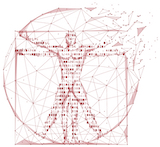

- This event has passed.
2nd Seminar of the “D2 Seminar Series” – Florence Center for Data Science
June 4, 2021 @ 14:00 - 15:30
The Florence Center for Data Science is happy to present the second Seminar of the “D2 Seminar Series” launched by the FDS. The Seminar will be held online Friday 4th of June 2021, from 2-3.30 pm.
The seminar will be held by Assistant Professor Cesare Bracco, PhD from the Department of Mathematics and Computer Science “Ulisse Dini” and Professor Leonardo Boncinelli from the Department of Economics and Management of the University of Florence.
Register her for the event (free of charge): Registration 2nd Seminar
Speaker: PhD Cesare Bracco
Department of Mathematics and Computer Science “Ulisse Dini”, University of Florence
Title: Scattered data: surface reconstruction and fault detection (joint work with O. Davydov, C. Giannelli, D. Großmann, S. Imperatore, D. Mokriš, A. Sestini)
Abstract: We will consider two aspects concerning scattered data approximation. The first is reconstructing a (parametrized) surface from a set of scattered points: the lack of structure in the data requires approximation methods that automatically adapt to the distribution and shape of the data themselves. We will discuss an effective approach to this issue based on hierarchical spline spaces, which can be locally refined, and therefore naturally lead to adaptive algorithms. The reconstruction problem contains another interesting problem: detecting the discontinuities the surface may have in order to reproduce them. Finding the discontinuity curves, usually called faults (or gradient faults when gradient discontinuities are considered), is actually an important issue in itself, with several applications, for example in image processing and geophysics. I will present a method to determine which points in the scattered data set lie close to a (gradient) fault, based on indicators obtained by using numerical differentiation formulas.
Speaker: Professor Leonardo Boncinelli
Department of Economics and Management, University of Florence
Title: Game-based education promotes sustainable water use
Abstract: In this study, we estimate the impact of a game-based educational program aimed at promoting sustainable water usage among 2nd-4th grade students and their families living in the municipality of Lucca, Italy. To this purpose, we exploited unique data from a quasi-experiment involving about two thousand students, one thousand participating (the treatment group), and one thousand not participating (the control group) in the program. Data were collected by means of a survey that we specifically designed and implemented for collecting students’ self-reported behaviours. Our estimates indicate that the program has been successful: the students in the program reported an increase in efficient water usage and an increase in the frequency of discussions with their parents about water usage; moreover, positive effects were still observed after six months. Our findings suggest that game-based educational programs can be an effective instrument to promote sustainable water consumption behaviors in children and their parents.